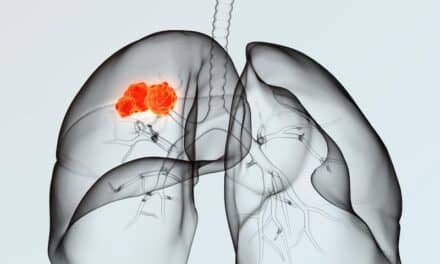Summary
A recent survey by the Prevent Cancer Foundation indicates a decline in cancer screening rates among US adults, contrasted by growing interest in at-home and multi-cancer early detection (MCED) tests. This shift highlights a significant change in how Americans approach cancer detection and their receptiveness to emerging methodologies.
Key Takeaways
- There is a notable decrease in traditional cancer screening rates in the U.S.
- U.S. adults are showing increased interest in convenient screening options like at-home and MCED tests.
- The survey reflects a broader trend in healthcare towards accessibility and convenience.
- Innovative screening methods could play a crucial role in improving early detection rates.
- The healthcare industry may need to adapt to evolving patient preferences.
A Prevent Cancer Foundation survey reveals a worrisome trend: a decline in participation in traditional cancer screenings such as mammograms, colonoscopies, and Pap smears among US adults. Several factors appear to contribute to this decline, including the lingering effects of the COVID-19 pandemic, which caused many healthcare routines to be interrupted or deprioritized. Additionally, some individuals may experience barriers such as cost, time constraints, and accessibility issues that make it challenging to attend in-person screenings.
According to the survey, a significant portion of the population remains unaware of the importance of regular screenings or is hesitant due to misconceptions about cancer risks. This lack of awareness may contribute to the declining rates, despite strong evidence linking early detection to better treatment outcomes. Furthermore, cultural and socio-economic factors can also play a role in influencing an individual’s decision to undergo regular screenings.
The data from the Prevent Cancer Foundation highlights the need for increased educational efforts and policies aimed at making cancer screenings more accessible and affordable. Such initiatives could help to reverse the downward trend by emphasizing the importance of early detection and its impact on survival rates.
The Rise of At-Home and MCED Tests
While traditional screening methods see a decline, there is a marked interest in more convenient approaches, notably at-home tests and multi-cancer early detection (MCED) technologies. One of the primary attractions of these newer methods is the ease of use. At-home tests allow individuals to perform screenings without visiting healthcare facilities, alleviating some of the barriers related to scheduling and transportation.
MCED tests, which aim to detect multiple cancer types through a single analysis, are garnering attention for their potential to streamline the screening process. The appeal of a comprehensive test that could potentially identify various cancers early on is evident in the survey’s findings. As these tests undergo further development and validation, they could become integral components of cancer prevention strategies.
However, it’s essential to note that while interest is high, these tests are not yet widely available or fully integrated into standard care practices. Regulatory approvals, cost considerations, and ongoing research are necessary steps before these options can become mainstream. Despite these hurdles, the receptiveness of U.S. adults to new approaches signals a shift towards embracing innovative solutions that prioritize convenience and early detection.
The healthcare sector’s continued focus on developing and promoting these new testing methods could significantly impact how cancer is detected and managed. By aligning with the preferences of modern healthcare consumers, the industry can work towards reducing the incidence of undiagnosed cancers and improving overall health outcomes.
Conclusion
In summary, the Prevent Cancer Foundation’s survey highlights a dual reality of declining traditional screening rates and increasing interest in more accessible options like at-home and MCED tests. Addressing the barriers to conventional screenings while advancing new methodologies could alter cancer prevention efforts, ultimately making early detection a routine part of healthcare for all US adults.





